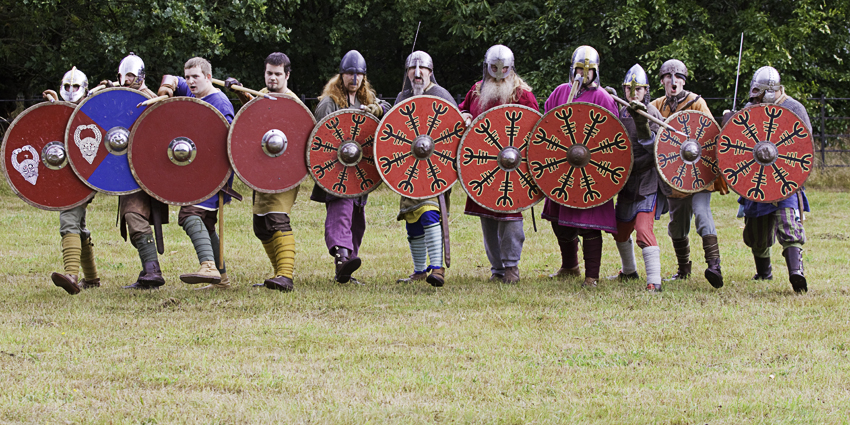by George Alexander Moss
Currently enchanting audiences as Hermione Granger in Harry Potter and the Cursed Child at the Palace Theatre, Noma Dumezweni has enjoyed a varied career on stage and screen including roles in everything from TV favourites Shameless and Doctor Who to Royal Shakespeare Company productions. To mark the opening of Black History Month, Dumezweni came to York St John to discuss her lead role in A Human Being Died That Night at the Hampstead Theatre.
Dumezweni began the sell-out event by quite literally drawing in the audience, asking them to gather their chairs closer to where she and YSJ English Literature Lecturer Julie Raby, who mediated the discussion, sat. The move seemed natural for the discussion of a play that demanded enormous personal investment from audiences and actors alike. The play is based on a book-length report by psychologist Pumla Gobodo-Madikizela of her interviews in prison with the head of Apartheid South Africa’s state-sanctioned death squads, Eugene De Kock. Dumezweni played the lead role of Gobodo-Madikizela herself. The play reminds theatre goers that, beneath immoral action, killers are mere people – not always the ‘other’. Dumezweni describes the play as being about the meaning of forgiveness, explaining that De Kock, “was able to apologise to three women whose husbands he had killed. They forgave him, because they felt his remorse.” It may seem initially difficult if not impossible to attribute remorse to such a monster. But in the face of murderous atrocities and sharp racial divides, empathy enabled a more complete truth to emerge, placing a fundamental human attribute into a time of enormous strife.
[He] “was able to apologise to three women whose husbands he had killed. They forgave him, because they felt his remorse”
-Noma Dumezweni, on State-sanctioned murderer Eugene De Kock.
To convey this, A Human Being Died That Night was original and immersive in its theatrics from the get go; even the Hampstead Theatre’s bar, and its patrons, were part of the performance. On arrival, audience members were lectured on forgiveness by Dumezweni in character as Gobodo-Madikizela. For Dumezweni, this intervention was part of the production’s wider sense of “freedom of things staging wise. You come in relaxed, and its listen to the story, oh no let’s move you, oh shit I have to move all my bags again, oh now everything has gone really quiet. And now you have to be really referential to the space you’re walking in. You are now a witness to something you didn’t know was coming.” Such unpredictability garners attention and marks memories. No doubt this understanding could have inspired Dumezweni’s chair moving tactics. She adds that in the theatre, “there’s a cage, there’s a cell. You’ve just walked into darkness, and Matthew [Marsh]’s sitting in a silver cell, and he’s dressed in bright orange. You the audience, have to go past him before you can get to your seat.” The audience are suddenly no longer bystanders in the proceedings – but part of the production.

Pumla Gobodo-Madikizela
Few actors are granted the opportunity to meet those they are playing, but Noma Dumezweni is one of them. However, it wasn’t smooth sailing to meet Pumla Gobodo-Madikizela, and Dumezweni’s rationalisation for potentially being denied this opportunity was that “someone is playing you, that you have never met, and using your words. I would be terrified, she must be so nervous, because I was nervous with meeting her. But she did turn up, and I was able to ask her: were you scared? And she went: yeah.”
The cast of A Human Being Died That Night had many such remarkable experiences during the course of the production. This included meeting De Kock himself in Victoria Prison. Dumezweni recalls this as being “an extraordinary thing, when you see somebody you’re supposed to hate. But I think the play helped me go along with this as well to a certain extent. I met a human being, who has taken absolute responsibility for everything he has done in his life […] He realised he was part of a system […] I got to meet him, extraordinary, and I can say gosh, I was able to forgive him. When we talk to people, it becomes a different thing.”
“I met a human being, who has taken absolute responsibility for everything he has done in his life”
-Dumezweni, on meeting “Prime Evil” Eugene de Kock in prison.
Ultimately, A Human Being Died That Night counts on the humanity of the audience to engage on an intimate level with characters that are based on real people. Even in the aftermath of the apartheid, one of humanity’s darkest times, human beings will always have the capacity to understand, empathise and even to forgive.
edited by Ollie Driver














 Local folklore has it that the crevice is haunted by a ‘boggle’, or goblin.
Local folklore has it that the crevice is haunted by a ‘boggle’, or goblin.




